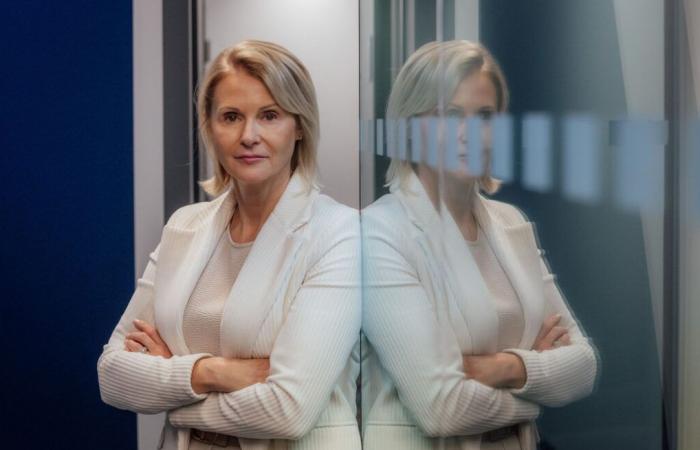Similar examination protocols, almost identical communication plans… Santé Québec will help reduce “duplication” in the network by applying best practices everywhere, promises its president and CEO, Geneviève Biron.
The boss of Santé Québec does not like to hear that the agency is “another structure”. “It’s not one more structure, it’s 30 structures that we’re removing,” she summarized during an interview with Duty Tuesday, after a media silence of several months.
These “30 structures” are the integrated health and social services centers (CISSS), establishments which today “operate individually”, but which will find themselves in the same “team”, Santé Québec.
“The big, big lever we have is being able to take best practices from one place, then [les implanter partout]. That’s very different from before. »
The new agency will fully launch on 1is next December. But Mme Biron has been in office since April. In the last few months, she set up her team, toured the network and identified things to rethink.
Eliminate duplication
Like “duplications”. “We replicate, from one establishment to another, the same protocols, the same tools, the same leaflets. We are doubling,” she noted. “The examination protocols are not very different from one establishment to another, but we duplicate them because they are all different teams. […] The 1is December, we will be able to put things in common. »
Does this mean that we are going to impose the same model everywhere? Mme Biron does not like the choice of verb. She will have the same reaction to the verb “force” later in the interview.
And what about those whose task is to produce the protocols and leaflets that we no longer want to duplicate? Will they do something else in the same position? The one who will soon direct the daily activities of the entire network says that it is “too early to talk about that”.
On the ground, she says she feels a lot of “openness” to change from network staff. But she adds that she is cautious “all the same”. “I still have a little concern. We are all ready to change, but not in our backyard, so I expect to have a bit of that resistance. »
“Lots of captains on the ice”
When asked what has “surprised” her the most about the network in recent months, she says she has been surprised by the number of people giving orders. “There are a lot of captains on the ice. That surprised me because in an organization, normally, it’s clear, [d’]where the orders come,” explained the former boss of Biron Groupe Santé, specializing in certain private medicine services.
“There are people in the ministry, in the cabinets, there are the ministers, the CEOs [des CISSS]. […] We have the national directors of certain programs…” In the current system, she explains, that’s a lot of people asking others to develop this or that, and for the CEOs of the CISSS, that generates ” confusion “.
However, from 1is December, normally, the directives should all come from her home.
A surgical action plan
One thing is certain, there will be changes in surgery. Currently, more than 10,000 Quebecers have been waiting for an intervention for more than a year. Last week, Health Minister Christian Dubé said it would be the agency’s priority to reduce delays.
An injunction that Mme Biron does not contest. “It still surprised me to see that we currently have 188 surgical rooms closed. I think we can really do something to make more use of our facilities. »
The agency’s executive vice-president, Frédéric Abergel, is on the case, she explains. He has set up a team of experts who are making “field visits” and who are “getting their heads together” with a view to submitting an action plan in the coming weeks. Among other avenues, they plan to review the method of planning schedules.
Mme Biron is also very interested in monitoring patients after operations. She mentioned it twice during the interview. She wants to “ensure that we can support patients after their surgery to prevent them from ending up in the emergency room.” This will go through the family doctor, the group of doctors or the professional associated with them in accordance with the minister’s new plan for the first line.
Less scatter
More generally, Geneviève Biron noted, in recent months, that there was a lot of “scattering in the network” and that a lot of things were being done to the detriment of the network’s priority missions. “I think we really need to make sure that we deliver the essence of our network,” she says.
“The observation is that, over the past ten years, the health budget has increased by 50% and the population, by 10%. Collectively, we have given a lot to the health sector. What I hope is that with the money we have, at least we can do better and give results to the population. »
However, the head of Santé Québec does not want to comment on specific targets or a timetable. But its “big goal” is no less ambitious: for people to have confidence in the health network again. “I would like us to turn the page on the past. » To be continued on 1is December.






